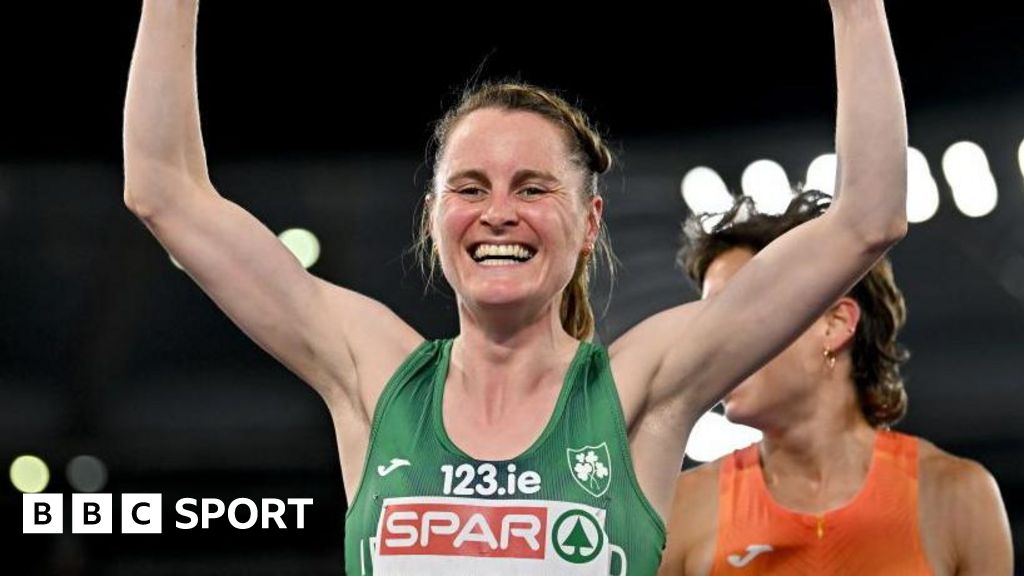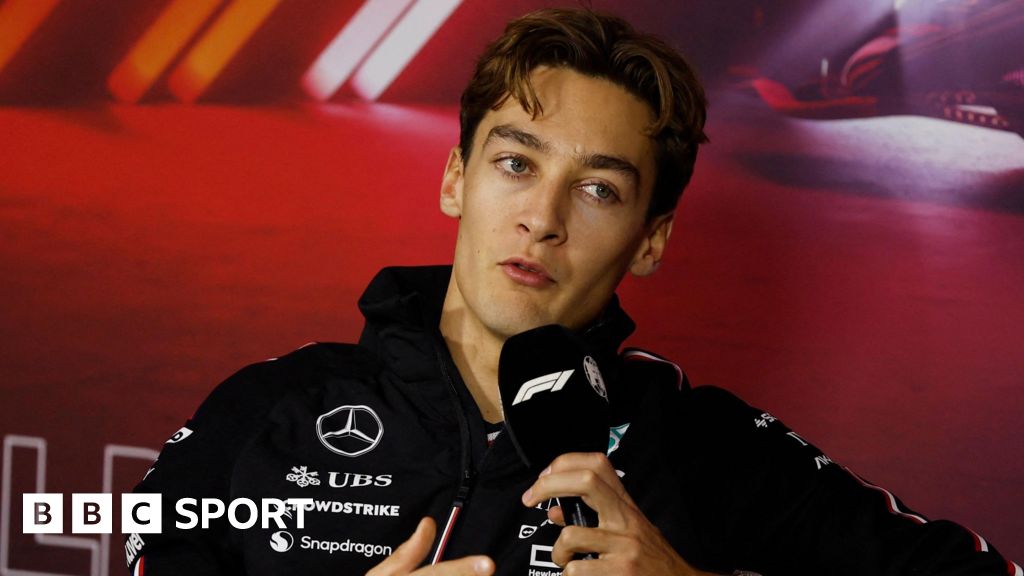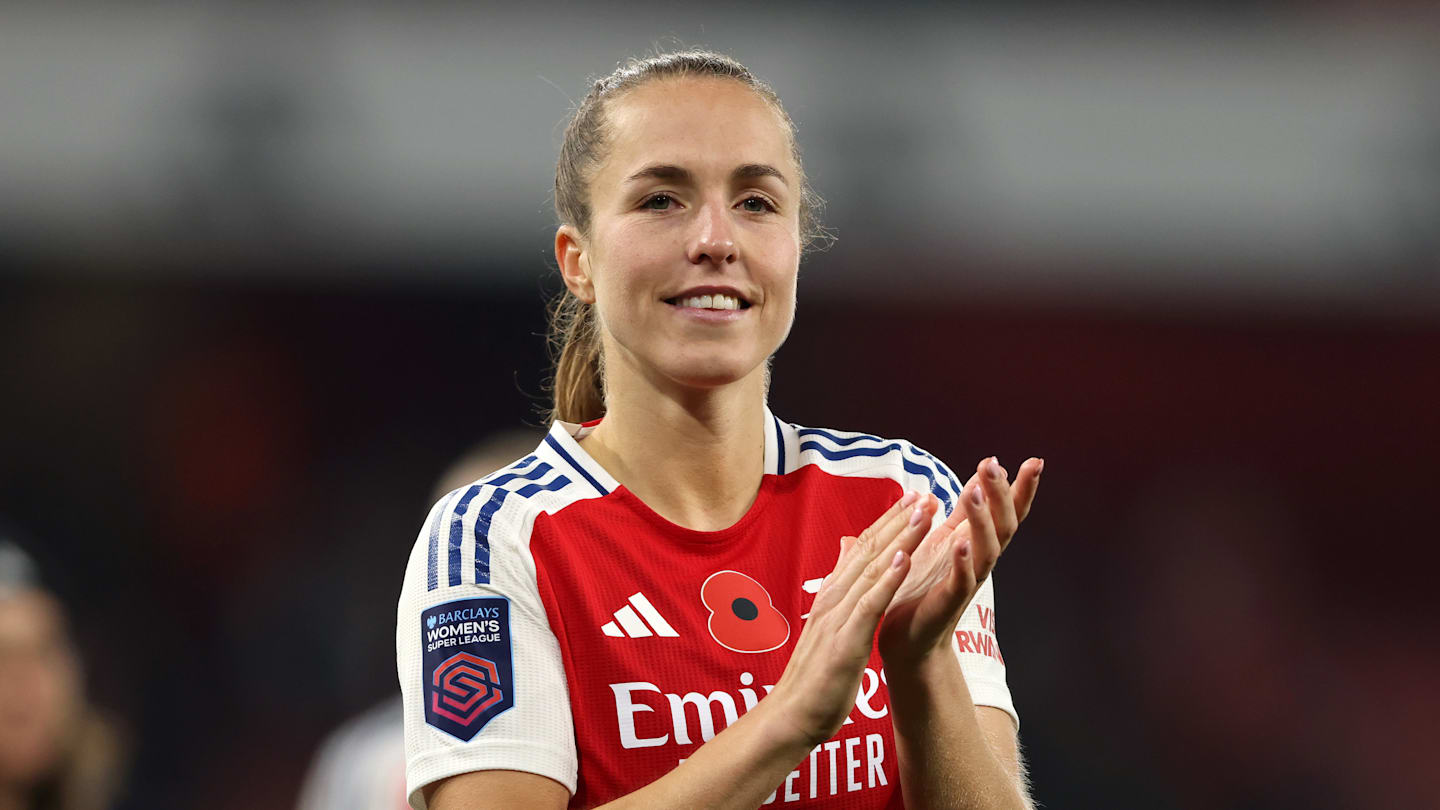Arsenal already trail Premier League leaders Liverpool by nine points. It’s a hefty gap, but one that teams have bridged in the past on the way to the title.
When the 2024-25 Premier League season began, it was Arsenal who were seen as the likeliest to threaten Manchester City’s monopoly on the English top-flight title.
Having run Pep Guardiola’s men close two years in a row, there was an optimism among Gunners fans – and even some neutrals – that it’d be a case of third time lucky.
Only, 11 games into the season and it’s Liverpool who are five points clear at the top, now considered heavy favourites to win the title. Arsenal, by contrast, already look as though they’re in danger of being cut too far adrift to make things interesting.

Of course, there’s a long way to go – 27 matchdays, to be exact – and lots could change. But the nine-point gap between Arsenal and Arne Slot’s Liverpool shouldn’t be taken lightly. The deficit itself also isn’t the only aspect you have to take into account; it also obviously means by extension that Arsenal aren’t in great form whereas the Reds are.
But who’s to say Liverpool don’t hit a rocky spell while Arsenal find their stride at some point? Teams have come back from greater deficits, as we are about to explore…
Arsenal – 1997-98
13-Point Deficit
Well, well, well, this is a nice omen for the Gunners, isn’t it?
That’s right, Arsenal hold the record for greatest points deficit overcome en route to a Premier League title, as they fought back from 13 points behind Manchester United in 1997-98.
Although Arsenal had a game in hand, they trailed United by 13 points at the end of December 1997 after a rough patch from mid-October saw them win twice and lose four times in a run of eight games.
But their form improved dramatically after Christmas, not losing again until their last two fixtures (both were defeats). By that point, however, the title was already theirs thanks to a stunning 10-match winning streak in which they conceded just three goals.

Arsenal still trailed United by 12 points as late into the season as February, yet they ended up winning the Premier League by a point, giving Arsène Wenger his maiden title in his first full season at the club.
The Gunners have overcome worse predicaments than they’re experiencing in 2024-25, then.
Manchester United – 1992-93
12-Point Deficit
Sir Alex Ferguson’s Man Utd teams had a remarkable habit of gobbling up points deficits, as you’ll learn before the end of this article.
The first such instance occurred during the inaugural Premier League season, as United found themselves in seventh and 12 points behind leaders Norwich City on 5 December 1992.
Eric Cantona’s arrival from Leeds the month before played a pivotal role in United’s resurgence, and despite going into December well adrift, they were top by mid-January after Norwich failed to win any of their six games from losing at United on 12 December to drawing at home with Coventry on 16 January.
United continued to yo-yo between first, second and third until early April, but Ferguson’s men won each of their final seven matches to ultimately finish a whopping 10 points clear of second-placed Aston Villa.
There was the slight caveat of the Premier League being a 22-team competition in those days, meaning United had more games to decrease the gap. But they achieved that and then cruised to glory, their first league title in 26 years.
It began a period of unprecedented dominance for the club and Ferguson.
Manchester United – 1995-96
12-Point Deficit
The classic, quintessential Premier League title comeback. Kevin Keegan’s Newcastle United were the division’s dominant force for much of the season, and a five-game winless run for Man Utd across November and December looked to have doomed them.
A 2-0 Old Trafford win over Newcastle on 27 December briefly inspired a little more optimism, but by 21 January, United were 12 points behind the Magpies at the top of the table with both teams having played 23 games. It was going to take a monumental turnaround.
What followed was a spectacular run of form for United; six wins in a row took them into their trip to Newcastle on 4 March just three points behind their hosts. They rode their luck, but Cantona’s goal early in the second half was decisive and left them behind the leaders only on goals scored.
Their title battle continued until the final few weeks of the season, when Ferguson’s mind games appeared to swing the pendulum in United’s favour.
Ferguson publicly questioned whether Nottingham Forest and Leeds would put in as much effort in upcoming games against Newcastle as they had versus United. Keegan provided a passionate response on live television, uttering the now-immortal words: “I would love it if we beat them, love it!”

During his rant, Keegan referenced the fact United still needed to go to Middlesbrough on the last day of the season – they won 3-0, with Newcastle drawing each of their last two games of the campaign 1-1.
Manchester United – 1996-97
10-Point Deficit
In 1996-97, United once again reached mid-December trailing in the title race. They were sixth in the table on 17 December, and 10 points behind leaders Liverpool.
Admittedly that made the situation look worse than it was, as United actually had two games in hand on their bitter rivals. But it was still a potentially daunting deficit given there’s never any guarantee that you’ll win games in hand.
United clawed their way back, thanks partly to a 3-1 win at Anfield in April, and eventually won the title with a seven-point lead over Newcastle, Arsenal and the Reds all on 68 points.
Nevertheless, United’s haul of 75 points remains the fewest ever recorded by the title winners in the Premier League era.
Manchester United – 2002-03
10-Point Deficit
A fairly slow start to the season saw United win just two of their first six Premier League games, and it took them a while to recover.
By mid-November 2002, they found themselves 10 points behind Arsenal at the top of the table. While United had played a game fewer at that point, their form offered little suggestion the gap would be comfortably overturned.
But United’s results after a 3-1 Boxing Day loss away to Middlesbrough improved dramatically. In fact, they didn’t lose any of their remaining 18 matches.
It was a necessary run, too, as Arsenal held an eight-point lead as late as March. A 2-2 draw at Highbury on 16 April was a boost for United, before the Gunners were held at Bolton and lost at home to Leeds as Ferguson’s men took charge, regaining the title.
Manchester United – 2008-09
10-Point Deficit
Yes, another Man Utd comeback, and that’s right, another caveat: while United did find themselves 10 points behind leaders Liverpool on 18 December 2008, that was heavily influenced by them not playing at all domestically for nearly two weeks prior to Boxing Day.
Having won the UEFA Champions League the season before, United were in FIFA Club World Cup action, meaning they ended up having three games in hand on Liverpool.
United’s league form never really hit a proper blip unlike in prior examples of them overcoming hefty points deficits. In the second half of the campaign they dropped points just three times, compared to seven times in the first half.
Liverpool and Fulham consigned United to successive league defeats for the first time since 2005 in March, and in early April they were on the verge of dropping points again to hand their rivals the initiative.
But Cristiano Ronaldo equalised to make it 2-2 against Aston Villa, before teenage debutant Federico Macheda scored a sensational dramatic winner in injury time, taking United back to the top of the table after Liverpool briefly replaced them.
United only dropped two more points and ultimately won the title with a cushion of four over Rafael Benítez’s men. The Spaniard’s infamous “facts rant” in the January had turned up the heat on his rivalry with Ferguson, and many blamed it for Liverpool’s drop off as they only won two of their next seven games after it (D4 L1). Liverpool did win 10 of their last 11 games that season (D1), albeit it was too little too late given United’s own form.

Manchester City – 2018-19
10-Point Deficit
From one famous Premier League managerial rivalry to another (albeit one with arguably a little more mutual respect); Pep Guardiola and Jürgen Klopp presided over some epic title battles before the German departed Merseyside in 2024.
In the 2018-19 season, Liverpool looked to be at another level to everyone for a while. On 29 December, they were yet to suffer a defeat in the Premier League; they’d played 20 times and won 18, scoring 48 goals and conceding just eight.
While Man City had actually scored three goals more, they’d lost three of their 19 games and were 10 points off the top. Those losses all came during a four-match spell in December, and given Liverpool’s imperious form, looked highly likely to be costly.
However, City won 18 of their 19 matches after Boxing Day, including a 2-1 defeat of Liverpool on 3 January 2019. That was the Reds’ only loss of the entire Premier League season, and it proved decisive. Again, though, it was a 10-point deficit that was overturned thanks in part to City having a game in hand at the time.

City’s astonishing form in the second half of the season saw them pip Liverpool to the title by a single point. The Reds’ 97 remains the most accumulated in Premier League history by a team who didn’t win the title, and at the time it was the third-biggest points tally in the history of the English top tier.
Liverpool could console themselves with Champions League success, however, and the following season they won their first league title in 30 years with their maiden Premier League crown.

Enjoy this? Subscribe to our football newsletter to receive exclusive weekly content. You can also follow our social accounts over on X, Instagram, TikTok and Facebook.









